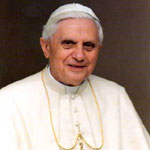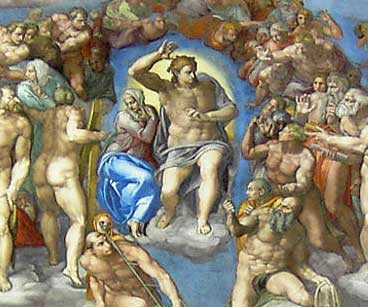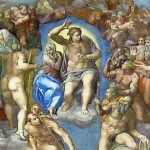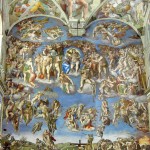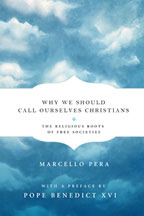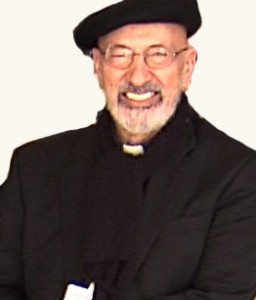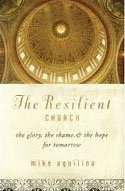“Who shall enter the kingdom of heaven?”
[powerpress]
an excerpt from today’s reflection by Don Schwager:
There is only one way in which a person’s sincerity can be proved, and that is by one’s practice. Fine words can never replace good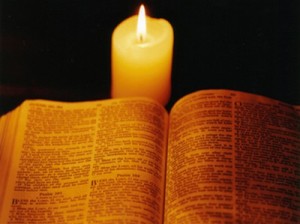 deeds. Our character is revealed in the choices we make, especially when we are tested. Do you cheat on an exam or on your income taxes, especially when it will cost you? Do you lie, or cover-up, when disclosing the truth will cause you injury or embarrassment? A true person is honest and reliable before God, one’s neighbor and oneself. His or her word can be counted on. If you heed God’s word and live according to it then you need not fear when storms assail you. God will be your rock and your refuge. Is your life built upon the sure “rock” of Jesus Christ and do you listen to his word as if your life depended on it?
deeds. Our character is revealed in the choices we make, especially when we are tested. Do you cheat on an exam or on your income taxes, especially when it will cost you? Do you lie, or cover-up, when disclosing the truth will cause you injury or embarrassment? A true person is honest and reliable before God, one’s neighbor and oneself. His or her word can be counted on. If you heed God’s word and live according to it then you need not fear when storms assail you. God will be your rock and your refuge. Is your life built upon the sure “rock” of Jesus Christ and do you listen to his word as if your life depended on it?
“Lord Jesus, your are my Rock and my Refuge. Help me to conform my life according to your word that I may stand firm in times of trouble and find hope in your promises.”
for the full reflection visit : Daily Reading and Meditation
Tags: catholic, catholic podcast, catholic prayer, cathollc spirituality, daily reflections, don schwager, kingdom of god, kingdom of heaven, season of advent
This entry was posted on Thursday, December 1st, 2011 at 12:01 am
You can follow any responses to this entry through the RSS 2.0 feed.
VATICAN CITY, 30 NOV 2011 (VIS) – This morning’s general audience was celebrated in the Paul VI Hall in the presence of 5,500 faithful. Having recently completed a series of catecheses dedicated to prayer in the Old Testament, the Pope today began a new cycle on the subject of the prayer of Christ which, he said, was “like a hidden canal irrigating His life, relationships and actions, and guiding Him with increasing firmness to the total gift of self, in keeping with the loving plan of God the Father”.
One particularly significant moment of prayer followed the Baptism of Jesus in the Jordan. This, the Pope noted, poses a query as to why Jesus, Who was without sin, should have chosen to submit Himself to John’s Baptism of penance and conversion. John the Baptist himself raised the question, saying “I need to be baptised by you, and do you come to me?”. The Holy Father explained how “by emerging Himself in the Jordan River, Jesus … expressed His solidarity with people who recognise their sins, who chose to repent and change their lives. He helps us to understand that being part of the people of God means entering into a new life, a life in conformity with God. By this gesture Jesus anticipated the cross, beginning His active life by taking the place of sinners, bearing the weight of the sin of all humankind on His shoulders”.
By praying after His Baptism, Jesus demonstrates His intimate bond with the Father, “experiencing His paternity and apprehending the demanding beauty of His love. Speaking to God, Jesus receives confirmation of His mission”, with the words that resound from on high: “This is my son, the Beloved” and with the descent of the Holy Spirit upon Him. “Through prayer”, the Pope said, “Jesus lives in uninterrupted contact with the Father in order to achieve His project of love for mankind”. It is in this profound union with the Father that Jesus made the move for the hidden life of Nazareth to His public ministry. (more…)
Tags: catholic, catholic podcast, catholic prayer, cathollc spirituality, pope benedict xvi, prayer
This entry was posted on Wednesday, November 30th, 2011 at 7:49 am
You can follow any responses to this entry through the RSS 2.0 feed.
Leave it to the intrepid Veronica Scarisbrick to find St. Andrew (I love the girls at Vatican Radio…they ROCK)
[powerpress = “Vatican_Radio”]
From Vatican Radio
Have you ever wondered which of the Figures in the Last Judgement fresco in the Sistine Chapel is Saint Andrew ?
Veronica Scarisbrick shares with you a comment focusing in a special way on this central figure in Michelangelo’s masterpiece, given he’s been placed close the figure of Christ the Judge.
That’s with Professor of Fine Arts, Breda Ennis of the American University of Rome who shares with us her expertise in the field of sacred art.
Tags: catholic, catholic podcast, catholic prayer, cathollc spirituality, michangelo, Saint Andrew, sistine chapel, vatican radio, Vatican Radio...they ROCK, Veronica Scarisbrick
This entry was posted on Wednesday, November 30th, 2011 at 12:08 am
You can follow any responses to this entry through the RSS 2.0 feed.
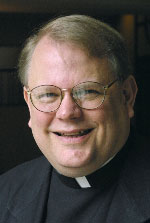 In this episode, Monsignor Moroney answers the question, where does the Mass come from?
In this episode, Monsignor Moroney answers the question, where does the Mass come from?
The New and Eternal Word, Monsignor James P. Moroney explores how the Church celebrates the Holy Mass in our day. In particular, he examines how a new Missale Romanum and a new English translation of these prayers can draw us more deeply into the words and rites of the Mass.
Tags: catholic, catholic podcast, catholic prayer, cathollc spirituality, eternal word, Monsignor James P. Moroney, Monsignor Moroney, new mass translation
This entry was posted on Wednesday, November 30th, 2011 at 12:07 am
You can follow any responses to this entry through the RSS 2.0 feed.
“Follow me, and I will make you fishers of men”
What is God’s call on your life and are you ready to respond? When Jesus began his ministry he went every where he could – the streets, towns, hills and lakeside of Galillee – to speak to people about the kingdom of God. He chose as his closest friends and coworkers those who were ready to follow as his disciples and he gave them an unusual mission – “to catch people for the kingdom of God”. What kind of disciples did Jesus choose? Smelly fishermen! In the choice of the first apostles we see a characteristic feature of Jesus’ work: he chose very ordinary people. They wer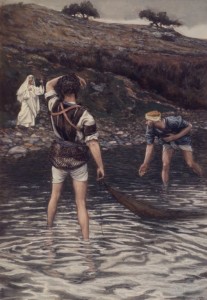 e non-professionals, had no wealth or position of power or fame in society. They were chosen from the common people who did ordinary things, had no special marks of education, and no social advantages. Jesus wanted ordinary people who could take an assignment and do it extraordinarily well. He chose these individuals, not for what they were, but for what they would be capable of becoming under his direction and power. When the Lord calls us to be his disciples, we must not think we have nothing to offer him in exchange. The Lord takes what ordinary people, like us, can offer and uses it for greatness in his kingdom. Do you believe that God wants to work through and in you for his glory?
e non-professionals, had no wealth or position of power or fame in society. They were chosen from the common people who did ordinary things, had no special marks of education, and no social advantages. Jesus wanted ordinary people who could take an assignment and do it extraordinarily well. He chose these individuals, not for what they were, but for what they would be capable of becoming under his direction and power. When the Lord calls us to be his disciples, we must not think we have nothing to offer him in exchange. The Lord takes what ordinary people, like us, can offer and uses it for greatness in his kingdom. Do you believe that God wants to work through and in you for his glory?
“Lord Jesus, you have called me personally by name, just as you called your first disciples, Simon, Andrew, and James. Fill me with the joy of your gospel and help me to be a good and faithful witness of your kingdom to all I meet.”
for the full reflection visit : Daily Reading and Meditation
Tags: apostle, catholic, catholic podcast, catholic prayer, cathollc spirituality, disciples, fishers of men, scripture reflection, st andrew the apostle
This entry was posted on Wednesday, November 30th, 2011 at 12:01 am
You can follow any responses to this entry through the RSS 2.0 feed.
It was an honor to have a conversation with Marcello Pera,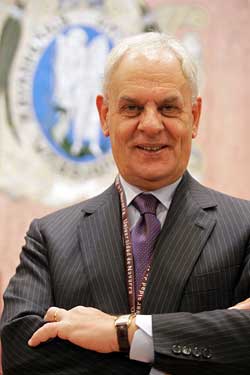 who  served as president of the Italian Senate from 2001 to 2006 and who now teaches political philosophy at the Pontifical Lateran University in Rome.  We discussed his book “Why We Should Call Ourselves Christians: The Religious Roots of Free Societies.  He maintains “that the very ideas on which liberal societies are based and by which they can be justified—the dignity of the human person, the moral priority of the individual, the view that man is a “crooked timber†inclined to prevarication, the limited confidence in the power of the state to render him virtuous—are distinctively Christian or, more precisely, Judeo-Christian ideas. Take them away and the open society will collapse.”  A  fascinating insight from a European viewpoint why America has succeeded in the past and the danger it faces in the future.
who  served as president of the Italian Senate from 2001 to 2006 and who now teaches political philosophy at the Pontifical Lateran University in Rome.  We discussed his book “Why We Should Call Ourselves Christians: The Religious Roots of Free Societies.  He maintains “that the very ideas on which liberal societies are based and by which they can be justified—the dignity of the human person, the moral priority of the individual, the view that man is a “crooked timber†inclined to prevarication, the limited confidence in the power of the state to render him virtuous—are distinctively Christian or, more precisely, Judeo-Christian ideas. Take them away and the open society will collapse.”  A  fascinating insight from a European viewpoint why America has succeeded in the past and the danger it faces in the future.
[powerpress]
 “The challenges of our particular historical momentâ€, as Pope Benedict XVI calls them in the Preface to the book, can be faced only if we stress the historical and conceptual link between Christianity and free society.
Tags: catholic, catholic podcast, catholic prayer, cathollc spirituality
This entry was posted on Tuesday, November 29th, 2011 at 6:15 am
You can follow any responses to this entry through the RSS 2.0 feed.
[powerpress]
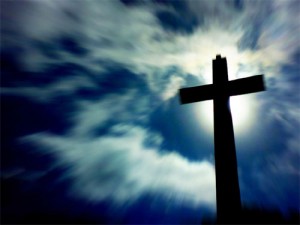
Msgr. Esseff spoke at a recent conference which was held in PA. in November 2011.  In talk #1, he speaks of the true identity of the Christian.  The 3 levels of the person; how others see us, how we see ourselves, how God sees us. The pain and wounds caused by our acceptance of the false identity.  The experience of aloneness and how Jesus redeems. We are being called to the depths in order to raise up the world in Christ Jesus.
Tags: catholic, catholic podcast, catholic prayer, cathollc spirituality, Christ Jesus, false identity, John Esseff, msgr. john esseff, spiritual healing, true identity
This entry was posted on Tuesday, November 29th, 2011 at 5:01 am
You can follow any responses to this entry through the RSS 2.0 feed.
What does Jesus’ prayer (Luke 10:21-22) tell us about God and about ourselves? First, it tells us that God is both Father and Lord of earth as well as heaven. He is both Creator and Author of all that he has made, the first origin of everything and transcendent authority, and at the same time, goodness and loving care for all his children. All fatherhood and motherhood are derived from him (Ephesians 3:14-15). Jesus’ prayer also contains a warning that pride can keep us from the love and knowledge of God. Pride closes the mind to God’s truth and wisdom for our lives. Jesus contrasts pride with child-like simplicity and humility. The simple of heart are like “babes” in the sense that they see purely without pretense and acknowledge their dependence and trust in God who is the source of all wisdom and strength. They seek one thing – the “summum bonum” or “greatest good” which is God himself. Simplicity of heart is wedded with humility, the queen of virtues, because humility inclines the heart towards grace and truth. Just as pride is the root of every sin and evil we can conceive, so humility is the only soil in which the grace of God can take root. It alone takes the right attitude before God and allows him as God to do all. “God opposes the proud, but gives grace to the humble” (Prov. 3:34, James 4:6). The grace of Christ-like humility inclines us towards God and disposes us to receive God’s wisdom, grace, and help. Nothing can give us greater joy than the knowledge that we are God’s beloved and that our names are written in heaven (Luke 10:20). Do you seek God’s wisdom and grace with humility and trust?
Jesus makes a claim which no one would have dared to make: He is the perfect revelation of God. Our knowledge of God is not simply limited to knowing something about God – who he is and what he is like. We can know God personally and be united with him in a relationship of love, trust, and friendship. Jesus makes it possible for each of us to personally know God as our Father. To see Jesus is to see what God is like. In Jesus we see the perfect love of God – a God who cares intensely and who yearns over men and women, loving them to the point of laying down his life for them upon the cross. Do you pray to your Father in heaven with joy and confidence in his love and care for you?
“Lord Jesus, give me the child-like simplicity and purity of faith to gaze upon your face with joy and confidence in your all-merciful love. Remove every doubt, fear, and proud thought which would hinder me from receiving your word with trust and humble submission.”
for the full reflection visit : Daily Reading and Meditation
Tags: catholic, catholic podcast, catholic prayer, cathollc spirituality, don schwager, gospel of luke
This entry was posted on Tuesday, November 29th, 2011 at 12:09 am
You can follow any responses to this entry through the RSS 2.0 feed.
Episode 7 – Regnum Novum: Bringing forth the New Evangelization through Catholic Social Teaching with Omar Guiterrez – Value 5 The Common Good, Universal Destination of Goods, Subsidiarity, Participation, Solidarity part 1
– Value 5 The Common Good, Universal Destination of Goods, Subsidiarity, Participation, Solidarity part 1
[powerpress]
These are the five principles laid out in the Compendium of the Social Doctrine of the Church. If we understand these principles, then the work of the Revolution can begin. We are made now for a New Kingdom with Christ as our King in all things. Let us discover this place together, and make the devil cringe and know the suffering of defeat. “Love”
Discerning Hearts is blessed to present Omar F. A. Guiterrez, M.A. , Special Assistant to Archbishop George Lucas of the Archdiocese of Omaha, in a groundbreaking series which breaks open the heart of Catholic Social Doctrine.
We encourage you to visit “Regnum Novum – A New Kingdom: A Revolution” Omar Guiterrez’s blog site
 We live at a very special time. The confluence of many things has brought forth the clear need to be able to articulate the Social Teaching of the Catholic Church in a way that is accessible and applicable. This is not to be an effort where high-minded theories are to be bandied about. Rather, this is a time of opportunity wherein we can apply the Social Doctrine to the concrete so as to bring about a New Kingdom, a Revolution. – Omar G. from Regnum Novum
We live at a very special time. The confluence of many things has brought forth the clear need to be able to articulate the Social Teaching of the Catholic Church in a way that is accessible and applicable. This is not to be an effort where high-minded theories are to be bandied about. Rather, this is a time of opportunity wherein we can apply the Social Doctrine to the concrete so as to bring about a New Kingdom, a Revolution. – Omar G. from Regnum Novum
From episode 7… Point 5: The Common Good, Universal Destination of Goods, Subsidiarity, Participation, Solidarity
These are the five principles laid out in the Compendium of the Social Doctrine of the Church. If we understand these principles, then the work of the Revolution can begin. We are made now for a New Kingdom with Christ as our King in all things. Let us discover this place together, and make the devil cringe and know the suffering of defeat.
In this episode we focus on “The Common Good”.
Also visit Omar’s “Discerning Hearts” page Catholic Social Teaching 101
Tags: catholic, catholic podcast, catholic prayer, cathollc spirituality, The common good
This entry was posted on Monday, November 28th, 2011 at 7:59 am
You can follow any responses to this entry through the RSS 2.0 feed.
Show 11 – The Truth About Abortion part 2
This is a program which contains a very powerful description of what abortion really is, how it is done, and the effects on the woman and child. It’s important to speak out and describe this evil; “Silence in the face of evil is itself evil: God will not hold us guiltless. Not to speak is to speak. Not to act is to act.” - Dietrich Bonhoeffer
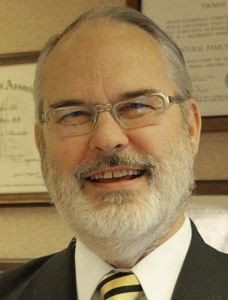
“Your Fertility Care Consultâ€
with Dr. Thomas Hilgers, founder of the Pope Paul VI Institute
for The Study of Human Reproduction
hosted by Kris McGregor
[powerpress]
listen to the entire series at Dr. Hilger’s Discerning Hearts Page
The Pope Paul VI Institute, founded in 1985 by Thomas W. Hilgers, MD, is internationally recognized for its outstanding achievements in the field of natural fertility regulation and reproductive medicine — 30 years of scientific research and educational program development; allied health professional education programs for couples and professionals; professional, caring, and morally acceptable patient services. The Pope Paul VI Institute for the Study of Human Reproduction is building a culture of life in women’s health care through its major developments — Creighton Model FertilityCare System and NaProTechnology.
Tags: abortion, catholic, catholic podcast, catholic prayer, cathollc spirituality, pope paul vi institute, The Pope Paul VI Institute, thomas hilgers, Thomas W. Hilgers
This entry was posted on Monday, November 28th, 2011 at 6:55 am
You can follow any responses to this entry through the RSS 2.0 feed.
Supporting our Priests
[powerpress “faith-check-with-greg-youell”]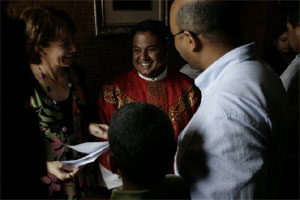
I once spoke with a priest of a large suburban parish with thousands of members, who told me that he could count the number of dinner invitations he had received over the past year from his parishioners on one hand.  This shocked me as I knew he was very busy with his ministry, and I assumed that he was frequently invited to the homes and activities of his parishioners.  Yet such was not the case.
It is easy to take our priests for granted.  Our priests are men who have sacrificed everything—marriage, family, children—for the sake of the Gospel.1  And yet they are but men who, like everyone, need to be encouraged, welcomed, and loved.
Let us find ways to involve them in the lives of our families.  Let us pray for them that they will grow in the grace of God and be protected from the attacks of the enemy;
And let us pray the Lord to send more priestly laborers into the harvest fields, so that the People of God might be sanctified, supported, and led in our earthly pilgrimage toward our Father’s House.
1Â -Â Â cf. Mt. 19:10-12; 1 Cor. 7:32-35
Tags: catholic, catholic podcast, catholic prayer, cathollc spirituality
This entry was posted on Monday, November 28th, 2011 at 6:37 am
You can follow any responses to this entry through the RSS 2.0 feed.
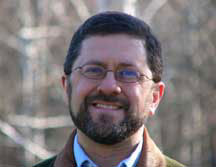 Episode 12– The History of the Future
Episode 12– The History of the Future
The Resilient Church with Mike Aquilina, offers a fascinating look at the trials and triumphs of the Catholic Church over the past two thousand years. Fast-paced sketches of critical periods in church history give readers perspective on the challenges faced by the church today. Mike Aquilina does not shrink from the realities of the past, including badly behaved leaders and those who betrayed the Lord. Yet he also leaves us all with well-founded hope for the future: God remains faithful in every circumstance and fulfills his promise to remain with his church always. Hosted by Kris McGregor
Also visit Mike’s “Discerning Hearts†page for more audio downloads and information!
Tags: catholic, catholic podcast, catholic prayer, cathollc spirituality, church history, mike aquilina, Resilient Church, st. paul center for biblical theology
This entry was posted on Monday, November 28th, 2011 at 6:23 am
You can follow any responses to this entry through the RSS 2.0 feed.
The prophet Isaiah foretold a time of restoration for the holy city Jerusalem and for its remnants (see Isaiah 4:2-6) and also a time of universal peace when all nations would come to Jerusalem to “the mountain of the Lord and to the house of the God of Jacob” and “beat their swords into plowshares” (Isaiah 2:2-4). Jesus fulfills this prophecy first by restoring both Jew and Gentile to fellowship with God through the victory he won for us on the cross. When he comes again he will fully establish his universal rule of peace and righteousness and unite all things in himself (Ephesians 1:10). His promise extends to all generations who believe in him that we, too, might feast at the heavenly banquet table with the patriarchs of the Old Covenant who believed but did not see the promised Messiah. Do you believe in God’s promises and do you seek his kingdom first in your life? The season of Advent reminds us that the Lord wants us to actively seek him and the coming of his kingdom in our lives. The Lord will surely reward those who seek his will for their lives. We can approach the Lord Jesus with expectant faith, like the centurion in today’s gospel reading, knowing that he will show us his mercy and give us his help.
“Lord Jesus, you feed us daily with your life-giving word and you sustain us on our journey to our true homeland with you and the Father in heaven. May I never lose hope in your promises nor lag in zeal for your kingdom of righteousness and peace.”
for the full reflection visit : Daily Reading and Meditation
Tags: catholic, catholic podcast, catholic prayer, cathollc spirituality, daily reflections, don schwager, gospel of matthew, kingdom of god, season of advent
This entry was posted on Monday, November 28th, 2011 at 12:01 am
You can follow any responses to this entry through the RSS 2.0 feed.
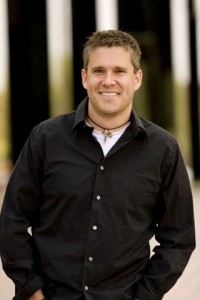 “Beyond Words” The First Sunday of Advent
“Beyond Words” The First Sunday of Advent
Mark Hart is an author, speaker, director and teacher, Mark’s work both written and spoken, is known across the country and world. While he serves as the Vice President of LIFE TEEN, he is known to tens of thousands simply as the “Bible Geek ®†Mark passionately echoes the gospel to all he encounters. He is as deep as he is funny, and his love for his wife and daughters is second only to his immense love for Jesus Christ.
Tags: catholic, catholic podcast, catholic prayer, cathollc spirituality, first sunday of advent
This entry was posted on Sunday, November 27th, 2011 at 10:54 am
You can follow any responses to this entry through the RSS 2.0 feed.
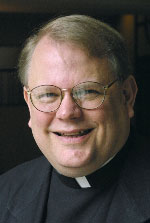 Monsignor James P. Moroney introduces to us the Collect for the First Sunday of Advent (from the new English translation of the Roman Missal, Third Typical Edition).
Monsignor James P. Moroney introduces to us the Collect for the First Sunday of Advent (from the new English translation of the Roman Missal, Third Typical Edition).
The last part of the introductory rites is the Collect prayer, or what is commonly referred to as the opening prayer. In the early Church, this prayer probably served to gather the assembly for worship, but now it serves to collect or focus the assembly’s prayer at the beginning of the liturgy.
The Collect is a carefully constructed prayer and can be broken down into several parts: the priest’s invitation to prayer, “Let us pray;” a brief period of silence for private prayer and recalling one’s own intention; the prayer itself (containing praise of God, a petition, and the hoped outcome for the petition); a concluding doxology, “Through Christ our Lord;” and the people’s response, “Amen.”
All of the Collect prayers have been retranslated in a way that more accurately captures their original structure and meaning in Latin. Obviously, some of the literary devices such as rhyme and word play, among others, will not shine through as they do in the Latin, and some of the sentences are long and complex. However, the words matter; the words articulate the truths of the Christian faith. The words shape and form us as a believing community, and the words contribute to the unity of the Church across the world.
Tags: catholic, catholic podcast, catholic prayer, cathollc spirituality, first sunday of advent, Monsignor James P. Moroney, new translation
This entry was posted on Sunday, November 27th, 2011 at 9:32 am
You can follow any responses to this entry through the RSS 2.0 feed.

